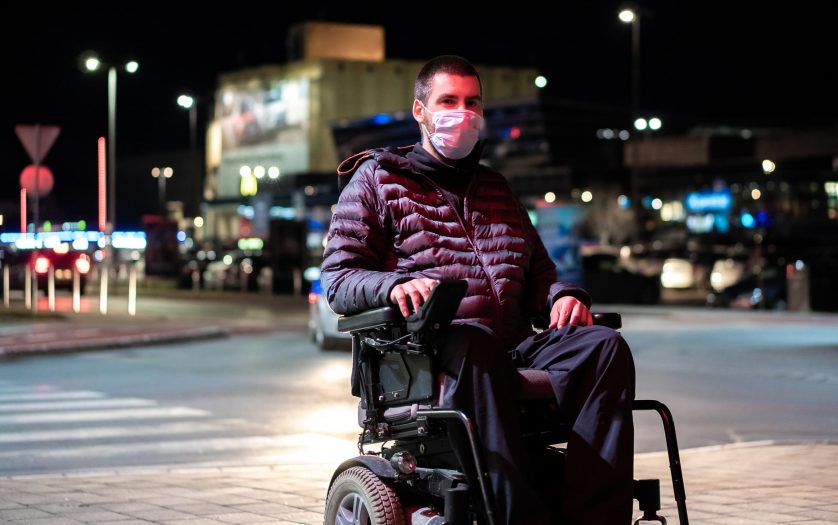
Disability advocates are sounding the alarm that Canada isn’t equipped for the anticipated flood of newly disabled people due to the coronavirus.
Covid-19 can have long lasting effects on many people – ‘long haulers’ as they’re called – such as breathing problems, mobility limitations from fatigue, sleeping issues, neurological complications, pulmonary fibrosis, inflammation of the heart, and kidney deficits.
A result of these long-term effects is that many Canadians may become disabled, either temporarily or permanently.
Mary Ann McColl, academic lead for the Canadian Policy Disability Alliance and an epidemiologist at Queens University in Kingston, Ontario told CTVNews.ca, “this is a whole new source of disability. And given that these conditions typically have disabilities associated with them, then it stands to reason that there will be a group of people who acquire new disabilities as a result of having COVID.”
Regina-based disability activist John Loeppky also told CTVNews.ca that cities and provinces “aren’t prepared for the disabled people that they have… let alone the increase that will undoubtedly come from the COVID-19 pandemic.”
With one in five Canadians having at least one disability currently and 10 per cent of COVID-19 patients being deemed ‘long haulers’, advocates said newly disabled Canadians are entering spaces that don’t consider accessibility a priority.
“I think it’s going to be exacerbated a great deal,” author and disability activist Amanda Leduc told CTVNews.ca, claiming that Canada has a “terrible history” when it comes to the accessibility and inclusion of disabled Canadians.
“You want people to participate. You want people to feel valued and the way you do that is making sure everyone’s needs are met,” Leduc said.
Disability advocates also strongly call for more paid sick time. “We all have different needs. Disabled people’s needs are not special. It’s quite easy to conceive of a situation when you have someone who’s been suffering from the long-term effects of COVID-19 who might have difficulty, for example, getting time off from work or trying to get accommodations because they don’t look disabled,” Leduc said.
She added that guaranteed paid sick leave or increased disability payments would help disabled people as well as lower-wage and essential workers. It’d give them the job security they need to stay home if they’re potentially infected with COVID-19.
Co-founder of the advocacy group Disability Justice Network of Ontario, Sarah Jama, told CTVNews.ca that existing COVID-19 disability progams, such as the one-time $600 Federal payment, the Disability Tax Credit or the Canada Recovery Sickness Benefit — which provides $450, after taxes, per week for up to two weeks — are not adequate enough for disabled people.
A survey, conducted in August, reported that more than half of disabled Canadians were having difficulties paying their bills because of the financial fallout of the COVID-19 crisis.
“The people being left behind this pandemic, and throughout the history of this country, are and have been and will continue to be [the] disabled unless we redefine what it means to have a right to live a valued life,” Jama said, referring to the “at peril” segment of disabled in long-term care homes, prisons and living on the streets.
“Our country does not are or value people outside of our ability to produce… if I can’t hold a job, or if I can’t work a 9-5 like everyone else, or if I’m an injured worker I will be left behind. I will be sentenced to poverty wages, living on social assistance, I’ll be sentenced to housing that is not accessible,” she said.
According to Jama, the pandemic is the government’s chance to introduce programs, such as universal basic income, which don’t focus government assistance on a person’s ability to work.
Leduc pressed policymakers to see COVID-19’s long-term effects as more reason to view disabilities on a spectrum — with some disabilities appearing in later life, some being more debilitating than others, and many not being wheelchair dependent.
“And the country has not done the work to show disabilities come in all sorts of shapes and forms,” Leduc said.








